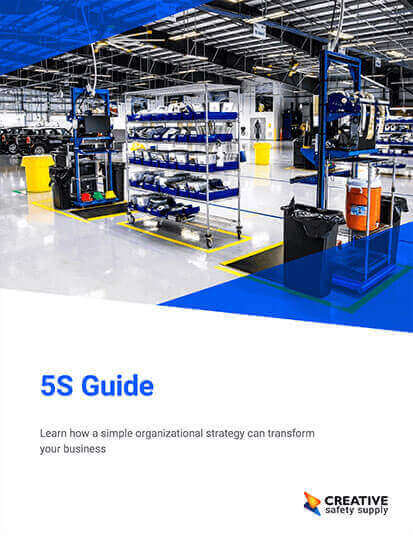
In the fast-paced and critical environment of healthcare, efficiency and safety are of paramount importance. The implementation of the 5S methodology, a structured approach to workplace organization and process improvement, is proving to be a transformative force in healthcare settings worldwide. In this article, we'll delve into the ways in which 5S enhances efficiency and safety, ultimately leading to better patient care and outcomes.
Optimizing Healthcare Environments with 5S
The core principles of 5S—Sort, Set in Order, Shine, Standardize, and Sustain—are particularly relevant in healthcare settings, where the stakes are high and every second counts. Let's explore how each component contributes to efficiency and safety in healthcare:
- Sort (Seiri): The first step involves decluttering and organizing the workspace. In healthcare, this means removing unnecessary items, expired supplies, and redundant equipment. By streamlining the environment, healthcare professionals can access what they need quickly, reducing response times in critical situations.
- Set in Order (Seiton): Efficient layouts and standardized storage systems are crucial in healthcare settings. This step ensures that essential tools, medications, and equipment are well-organized and easily accessible. Properly labeled shelves, drawers, and cabinets contribute to a seamless workflow.
- Shine (Seiso): In healthcare, cleanliness is not only a matter of aesthetics but also a critical component of safety. Regular cleaning routines and maintenance checks help prevent the spread of infections and ensure that equipment is in optimal working condition.
- Standardize (Seiketsu): Standardizing procedures and protocols is essential for consistent and reliable care. This step involves creating clear guidelines for tasks, workflows, and communication, ensuring that every team member understands their role in providing safe and efficient care.
- Sustain (Shitsuke): Sustaining the improvements achieved through 5S requires ongoing commitment and discipline. Regular audits, training, and reinforcement of 5S principles among healthcare staff contribute to a culture of continuous improvement and safety.
Reducing Errors and Improving Patient Safety
One of the most significant benefits of 5S in healthcare is its impact on patient safety. By organizing and standardizing workflows, healthcare professionals can minimize the risk of errors and ensure that critical tasks are carried out consistently. For example, having clearly labeled medication storage areas and standardized protocols for administering medications can prevent medication errors.
Streamlining Emergency Response
In emergency situations, every second counts. With a well-organized and clutter-free environment, healthcare teams can respond more rapidly and effectively to urgent situations. This can be life-saving in critical care settings where prompt interventions are crucial.
Enhancing Staff Morale and Well-being
A well-organized and efficient workspace contributes to a positive work environment. When healthcare professionals can easily find the tools and supplies they need, it reduces frustration and stress, ultimately leading to higher job satisfaction and improved well-being.
Elevating Healthcare with 5S
The integration of 5S into healthcare environments represents a significant leap towards safer, more efficient patient care. By adhering to the principles of Sort, Set in Order, Shine, Standardize, and Sustain, healthcare facilities can achieve higher levels of efficiency, safety, and ultimately, better patient outcomes.
Similar Questions
- What is the meaning of 5S? A Workplace Organization and Efficiency Guide
- What are the principles of 5S?
- How does 5S help achieve Lean Manufacturing excellence?
- What is Lean 5S? Improving Workplace Organization and Efficiency
- What are the Steps to 5S Implementation?
- How does 5S increase workspace productivity?
- How do you Boost Productivity With 5S?
- What does 5S look like in the digital age?
- Why is 5S important in the workplace?

